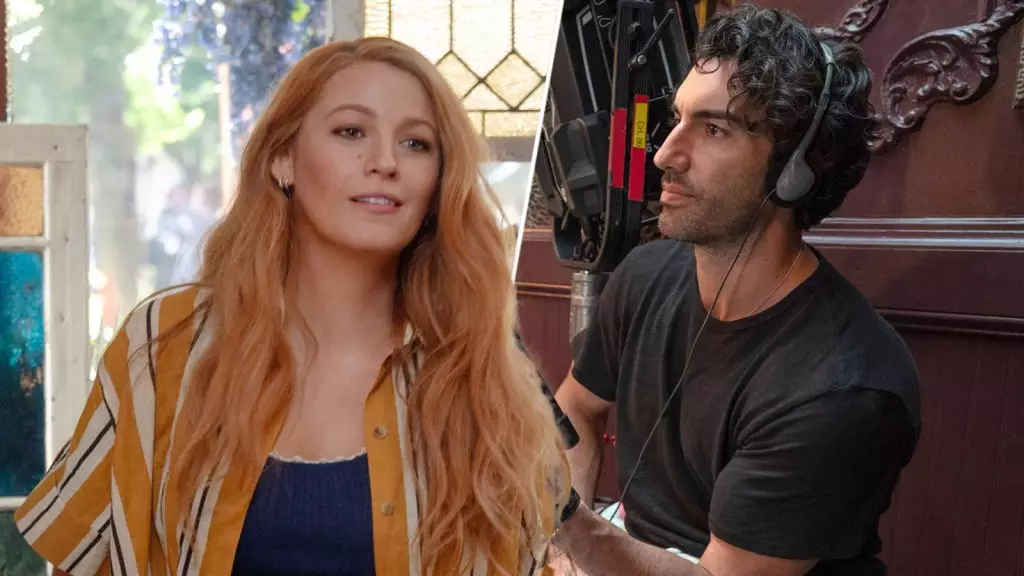The entertainment industry has often been a focal point for discussions surrounding workplace conduct and personal conduct among its players. The recent lawsuit initiated by actress Blake Lively against Justin Baldoni, her co-star and director in the film adaptation of *It Ends With Us*, brings renewed scrutiny to the gravity of these allegations, revealing the tumultuous effects of harassment on a personal and professional level. This case serves not merely as a tale of individual distress but as a reflection of broader systemic issues within the industry, especially regarding the treatment of women and the repercussions of standing up against alleged misconduct.
The lawsuit filed by Lively alleges sexual harassment and a coordinated smear campaign orchestrated by Baldoni and his production company, Wayfarer Studios. According to the complaint, Lively claims that her decision to speak out about Baldoni’s alleged inappropriate behavior resulted in tangible professional consequences. This included the withdrawal from a scheduled appearance on the landmark fiftieth season premiere of *Saturday Night Live*, with Jean Smart stepping in to fill the role. Lively expressed that ongoing negative perceptions stemming from Baldoni’s conduct hampered her ability to engage in public appearances without addressing the serious situation at hand.
This lawsuit highlights the entwined nature of public relations in the entertainment sector and how rapidly rumors can overshadow an individual’s professional standing. The document filed with the California Civil Rights Department reveals a significant, if not immediately devastating, impact on Lively’s career trajectory, canceling not only her participation in *SNL* but also a pivotal corporate event for her beauty line.
Lively’s complaint draws attention to a specific incident during a resumption meeting of the film’s production that portrayed a shocking atmosphere. Allegations against Baldoni’s behavior included inappropriate comments and actions, which potentially violated professional boundaries. The film adaptation in question addresses themes of domestic violence—an ironic juxtaposition to the alleged personal misconduct experienced on set. Such circumstances raise crucial questions about the power dynamics within the industry: how often do individuals in positions of authority, like Baldoni, exploit their status to engage in objectionable behavior unchallenged?
Moreover, reports indicate that Baldoni allegedly created a “sophisticated press and digital plan” to manage the fallout from Lively’s accusations, underscoring a troubling trend where individuals may manipulate public perception in efforts to protect their reputations, even in the face of serious allegations. The role of PR specialists in such situations complicates the narrative further, adding layers of strategy that may undermine accountability rather than promote it.
The response to the lawsuit from Baldoni’s attorney paints a contrasting picture, asserting that Lively’s claims are not only false but also a strategy aimed at salvaging her reputation after the criticisms she received surrounding the film’s promotion. Such assertions reveal the combative nature of these types of allegations, where narratives are often spun and countered in the public sphere. This demand for defense raises an intriguing point on the legitimacy of claims made by women in Hollywood, as they become vulnerable to backlash and dismissal by powerful entities.
The abrupt end of Baldoni’s representation by WME post-filing signifies immediate repercussions for him, suggesting that the industry may indeed take allegations seriously. In contrast, the endorsement from *It Ends With Us* author Colleen Hoover, who expressed unwavering support for Lively, illustrates a growing trend within the industry where individuals are starting to prioritize human decency over professional loyalty, potentially signaling a shift towards more accountability.
Blake Lively’s lawsuit against Justin Baldoni is more than a personal attack; it is emblematic of a broader struggle within the entertainment world over issues of harassment and the treatment of women. The fallout from such allegations can reshape careers, echoing far beyond individual experiences. As this situation unfolds, it serves as a critical touchpoint for ongoing debates surrounding gender dynamics, accountability, and the collective responsibility of an industry to foster a safer, more equitable environment for all its members. Ultimately, it is a reminder that speaking out is not just an act of individual bravery, but a necessary step in advocating for systemic change.

Leave a Reply